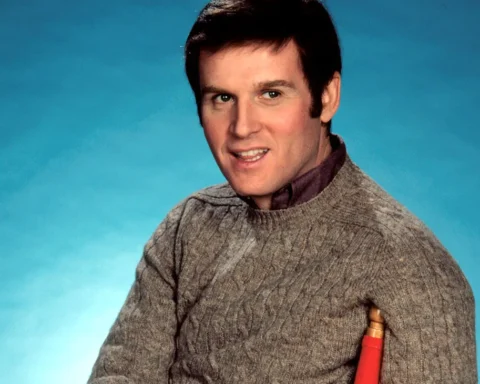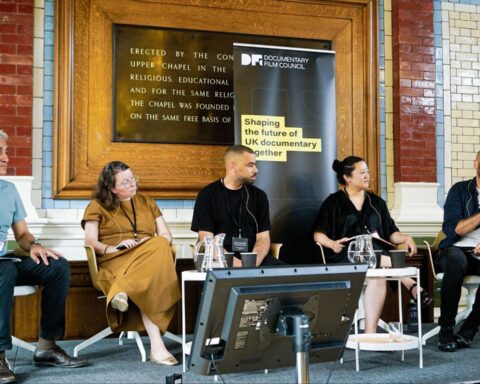My Generation
(UK, 85 min.)
Dir. David Batty
Listen up, you princes of Maine, you kings of New England!
Michael Caine might be a regular English gentleman to younger viewers on this side of the pond, but the two-time Oscar winning actor was never destined for stardom. As Caine narrates in this tour of the swinging 60s, English society was still very much caught in the stranglehold of the class system when his parents brought him into the world. Kids, depending on the social strata that were born into, knew their place and couldn’t aspire to much if they hailed from one of the lower rungs. Caine, a cockney boy from South London, was destined to continue his father’s practice as a fishmonger, except, as he says, he didn’t like the smell of fish.
Caine uses his own trajectory to present a study of the larger movement of social change in England. The youth of the Queen’s kingdom defied their elders by insisting that they didn’t want to smell like fish their entire lives if they didn’t want to. The youth of the ’60s wanted better and Caine’s sparkling recollections portray a city that rejuvenated itself lemony fresh with mini-skirts, androgynous haircuts, and birth control polls. There might not be much here that audiences didn’t get in the _Austin Power_s movies, but the clothes are sexy and the music is hip as Caine enjoys the role of narrator and reflects upon the greater cultural revolution of which he was a part.
Caine is one of the best actors of his generation or any other, so his story’s worth the ticket. His extraordinary career spans from Alfie the playboy to Alfred the butler, and he’s starred with everyone from Laurence Olivier to Kermit the Frog, yet as he explains in his fun, breezy narration, he might have settled for bit parts in repertory theatre since even they were a step up from the fish for which he was destined. The actor explains how his cockney accent—now a distinguished trademark—kept him on the lower rungs of supporting players as English producers and directors generally wanted their films to project a certain image. Everyone in old English movies sounds like they’re at high tea in Buckingham Palace because movies were made largely by and for the upper class. Caine talks about his love for going to the movies night after night even if he didn’t see his life reflected onscreen, and how a screening of David Lean’s Brief Encounter wowed him with its middle aged romance told in vernacular language.
The actor credits his breakthrough role in Zulu to an American director who couldn’t distinguish between a real posh accent and a fake one. Caine playfully recounts how repertory theatre prepared him to mask his working class roots with phony affectations, and to an untrained ear, all posh English accents sounded the same. The actor, né Maurice Micklewhite, adds how he changed his name when his agent insisted he avoid having the same name as another actor in the union, and the story goes that he looked at a marquee across the street advertising The Caine Mutiny and gave the answer on the fly. (Perhaps Tom Cruise would have won his Oscar for Magnolia, after all, if as Caine says, he had looked to the marquee on the neighbouring theatre that was playing 101 Dalmatians.)
My Generation has a lot of fun as Caine guides audiences through the “lower” parts of London, and England more broadly, where culture was undergoing a major revolution in cafés and dive bars while the aristocracy marinated in the status quo. Caine recalls a time when one could pop out for a sandwich and hear some new band called The Beatles without worrying about mobs of screaming fans. Many of the English stars who formed this new wave of pop culture came from similar working class backgrounds as Caine and the doc highlights how their success tapped into a greater culture pulse that desired to elevate stars who reflected a wider representation of society.
The doc includes the success stories of other Brits with Twiggy, Paul McCartney, Marianne Faithful, and photographer David Bailey, among others, joining Caine for the ride. Audio conversations between Caine and his contemporaries accompany a groovy tapestry of 1960s nostalgia as valuable archival footage highlights the youthful vitality of a generation that flourished with newfound freedom. Caine is the only star to appear on camera in the present tense, but the seamlessness of the collage works to the film’s advantage as it shows the stars in the prime of their lives while their commentary reflects ageless wisdom.
Told in three chapters that loosely denote the euphoria of the youth movement and the dark counterblow of conservatism, My Generation skirts over much of the hardships faced by youths who fell to the excesses of sex, drugs, and rock’n’roll or became The Establishment’s scapegoats for bad behaviour. The doc also overlooks the fact that change often comes for a select few, but the imbalances of representation within the archival footage are also products of the longstanding value systems that impeded progress—and still do—as the Michael Caines of other communities break through barriers today.
One might take the success of a star like Caine for granted, but My Generation offers a valuable reminder to audiences not to judge the potential or dreams of others. Everyone deserves a fair shot.
My Generation opens in Toronto at Hot Docs Ted Rogers Cinema on Sept. 28 and in Ottawa at The ByTowne on Oct. 14.
My Generation | Official Trailer from Pacific Northwest Pictures on Vimeo.
Michael Caine in _My Generation_
Photo by Jeff Spicer










